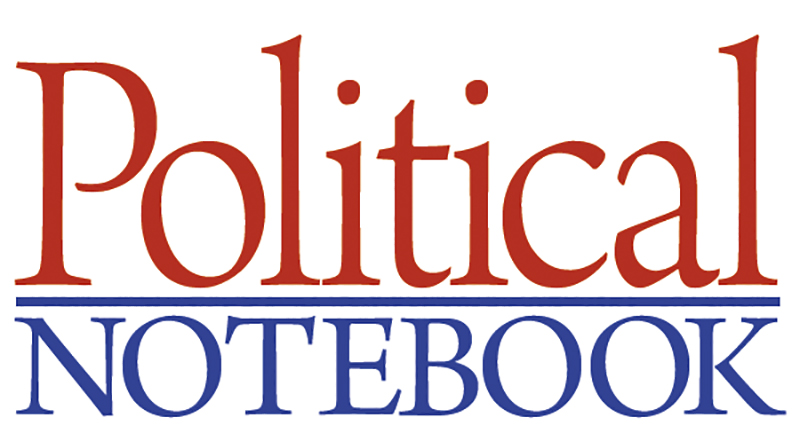Political Notebook: Rowan’s lawmakers pass 140 bills into the opposite chamber before deadline
Published 1:41 am Monday, May 17, 2021
With the deadline for bills in the North Carolina General Assembly to pass into the opposite chamber gone, Rowan County’s four Republican lawmakers have 140 bills that could become law.
The deadline for all bills to cross over into the opposite chamber was May 13. There are a limited number of bills that are not subject to the deadlines, including congressional and legislative redistricting.
Rep. Harry Warren, R-76, has passed 53 of his bills into the Senate. Issues he has signed onto or is leading include concealed carry for emergency management services workers and judges, environmental waste, charging stations for electric vehicles and abortion restrictions.
Rep. Wayne Sasser, a Republican pharmacist representing parts of Rowan and Stanly counties, has moved 58 of his bills to the Senate chamber. A plurality of those are related to various health care practices, but Sasser has also signed on to several measures related to guns, preventing rioting and civil disorder and the governor’s emergency powers.
Rep. Julia Howard, a Republican representing parts of Rowan and Davie counties, has 15 bills in the Senate, ranging from the issues of debt settlement, local sales tax flexibility, clergy visitation in hospitals, death benefits for the families of retired lawmakers and revised animal fighting laws.
Sen. Carl Ford, a Republican representing District 33, has passed 14 of his bills to the House. Those bills are related to cooperation with ICE, concealed carry for churchgoers attending a religious meeting place that’s associated with educational property, building code modifications, abortion and donor privacy.
Civitas Poll indicates statewide skepticism over where President Biden is taking the country
A new Civitas Poll indicates a sizable percentage of North Carolinians, including Democrats, are skeptical of where President Joe Biden is taking the nation.
A survey of 600 likely voters in the 2022 general election conducted from May 6-8 showed nearly 60% are worried the Biden administration will do too much to increase the size and role of government, a news release about the poll stated. That number includes 27% of Democrats, 56% unaffiliated voters and 97% of Republicans surveyed. Nearly half are very concerned, while 25% are not concerned at all. Only 2% indicated they were unsure.
The poll also shows more than half of North Carolinians seem to believe the country is on the wrong track, with 39% believing it’s headed in the right direction. John Locke Foundation President Donald Bryson said in a statement the findings indicate a widening gap view of the country’s direction compared to the last survey conducted.
The president’s overall job approval, however, remains fairly evenly split. A total of 48% approve and 49% disapprove. Strong disapproval sits at 45% and strong approval sits at 33%.
“President Biden is earning middling marks with North Carolina voters, with a fairly even approval rating,” Bryson said.
Gov. Roy Cooper’s approval in the poll is higher, with 53% approving and 41% disapproving. Bryson said that reflects a 4-point increase in approval compared to March Civitas Poll results.
The poll also assessed a variety of amendments to the state constitution being considered by state lawmakers. The poll indicated 64% support an amendment that says the right to work cannot be denied based on whether a person is or isn’t a member of a labor organization, while 56% approve of adding a Taxpayer Bill of Rights that would limit the growth of state spending to inflation plus population growth.
NCGOP Chairman sends letter to State Board of Elections opposing proposed rule change
Earlier this month, North Carolina GOP Chairman Michael Whatley, on behalf of Republican County Chairs, expressed opposition to a proposed rule limiting the number of poll observers during elections via a letter to the State Board of Elections.
The current statute allows two precinct-specific observers to serve at one time in shifts of at least four hours before being relieved by two different precinct-specific observers. The proposed rule, which was first brought up during the State Board of Elections meeting on May 6, would change that requirement to two precinct-specific observers per day.
The proposed rule change prompted state Republican lawmakers to file House Bill 819, which authorizes the appointing authority to allow an observer to alternate with another observer throughout the day of the election with no time constraints on how long each observer serves. Additionally, the bill clarifies the process for political party chairs and unaffiliated candidates to designate observers.
Rep. Harry Warren, R-76, is among the Republicans sponsoring the bill. The legislation was sent to the Rules, Calendar and Operations of the House Committee on May 5.
“The State Board of Elections’ proposed rule would place a substantial burden on the participation of volunteer observers in the election process, which, as we have seen around the country, is key to public confidence in the results of an election,” Whatley said. “Election rules should make the voting process open and transparent, but this proposed rule encourages the exact opposite.”




